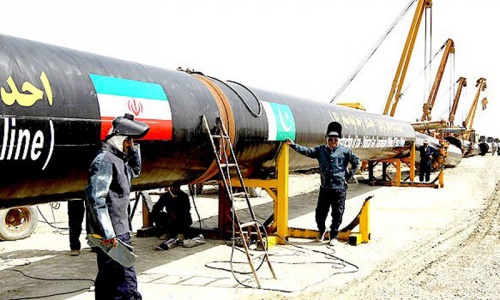ISLAMABAD: The Senate standing committee on petroleum has been informed that the recent relaxation of sanctions by the United States and the European Union against Iran has not offered any benefit to Pakistan in case of its gas imports from Tehran.
The ministry of petroleum and natural resources has told the committee that the ministry of foreign affairs had reviewed the entire situation following the Iran-P5 nuclear deal from legal and diplomatic standpoints.
The Foreign Office has concluded that the softening of sanctions would not provide any relaxation or benefit to Pakistan if it imports gas from Iran.
Petroleum Secretary Abid Saeed said the FO believed that the US and EU would impose sanctions against Pakistan the day gas started flowing from Iran.
Mr Saeed said both Iran and Pakistan appreciated the situation and would meet later this week to review penalty clauses for failure to take gas, set new timelines and the way forward.
Petroleum Minister Shahid Khaqan Abbasi also confirmed before the committee that the implementation of the pipeline project faced difficulties because of European and American restrictions.
He said Iran had completed pipeline on its side of the border. The major problem was that the machinery and equipment required for laying gas line and installing compressions facilities were being manufactured by only two global companies which were not ready to work on the project because of sanctions, he said. The largest Chinese bank had also declined to invest in the project.
LNG IMPORT:
The committee expressed reservations over signing of a memorandum of understanding between the United Energy Group and the Sui Southern Gas Company for supply of liquefied natural gas without clearance and vetting by the previous PPP-led government.
The petroleum minister updated the committee on LNG import projects and said the construction of a port terminal was in progress, but a tender had not been issued yet for LNG supply.
He confirmed that LNG would not cost less than $17 per MMBTU when inducted into the gas system.
The additional gas will be sold under marginal cost plus basis because it would go to bulk consumers instead of applying weighted average price that was also applicable to domestic consumers.
The chairman of the committee, Mohammad Yousaf, expressed concern that the sale of LNG at $19-22 per MMBTU to consumers would open floodgates of inflation because its current price was $4 per MMBTU.
He said the previous government had signed the gas import agreement with Iran despite Western pressure.
Mr Yousaf suggested that the current PML-N government should also hold talks with Tehran and get its reservations removed.
The committee called for engagement with Iran to not only complete the pipeline but also to avoid penalties for Pakistan’s failure to buy natural gas under the agreement.












































